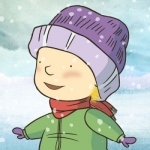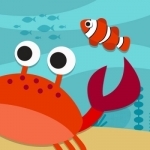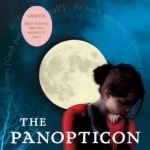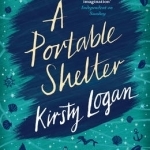
Farm Animals Makeover - Cute Virtual Pet Salon
Games
App
Welcome four farm animals to your beauty salon! Play kids favorite makeover games with kitty, bunny,...

Into the Snow: A Stella and Sam Adventure
Games and Education
App
(Description en français plus bas.) Play alongside Stella and Sam and their dog Fred as they go...

Sweet Baby Girl Halloween Fun - Spooky Makeover & Dress Up Party
Games and Education
App
Halloween is coming! Play with Sweet Baby Girl and have the most adventurous Halloween celebration...

edjing Pro LE - dj mixer
Music and Games
App
Discover edjing Pro, the track-mixing app that turns you into a professional DJ, now on its FREE...

edjing Pro - dj mixer
Music and Games
App
NEW: After edjing, the #1 DJ app with its +25 million downloads, discover edjing Pro, the...

Make A Scene: Under The Sea
Games and Education
App
The animated sticker app for children with descriptive audio and fun sound effects! Join over half a...

Bridge Constructor
Games and Entertainment
App
+++ Over 50 million players worldwide +++ +++ Number 1 in the games charts for iPad & iPhone in 89...

Hopster: Kids TV & Learning
Education and Games
App
Explore the immersive, award-winning world of Hopster. With fun, educational games, nursery rhymes,...
Eilidh G Clark (177 KP) rated The Panopticon in Books
May 13, 2017
At the beginning of the novel, the fifteen-year old Anais is governed by the state. In contemporary British society, a child under the age of sixteen, regardless of her social situation is, by law, governed by an adult/s. Anais has lived her life in the care system with the exception of a short period in which she lived with an adopted mother. It is for this reason that she is able to see society from outside of the family unit. By creating the motherless child, Fagan presents Anais as the ‘other’ from both a societal perspective- ‘communities dinnae like no-ones,’ and from the viewpoint of the protagonist, ‘What they really want is me dead,’ (TP, p.23). Without a family, and through a lack of legitimate information regarding her birth mother, Anais believes that she was created in a lab:
I’M AN experiment. I always have been, It’s a given, a liberty, a fact. They watch me. Not just in school or social-work reviews, courts or police cells – they watch everywhere. […] They’re there when I stare too long or too clearly, without flinching. […] They watch me, I know it, and I can’t find anywhere any more – where they can’t see, (TP, Prologue).
Note that in the above quotation, the protagonist describes her assumed identity as a ‘liberty’. Liberty, in this case, means freedom from the oppressive nature of the family. Although Anais desires the nurturing aspect of the family, ‘I just want my mum,’ (Tp, p.269), her lack of family exposes her to the nature of contemporary society as a constant monitoring of civilians. In the above quotation, the repetition of ‘they’ suggests that she feels outside of the norm. The most important aspect of the above quote however, is that it is told from the protagonist’s thoughts. While Fagan gives Anais a certain amount of autonomy through both the first-person narrator, and the vernacular, the reliability of the narrator is increased by presenting the characters inner thoughts. While this limited autonomy is important, full autonomy is restricted by age. Bever suggests that ‘the capacity for individuals to become autonomous seems radically dependent on the contingent historical circumstances and societies into which they are born. Anais’ awareness of herself as the ‘other’ allows her an insight into the oppressive role of society, which is normally hindered in childhood due to the role of the family and it’s teaching of norms and values.
The sense of otherness can also be looked at in regard to Scotland and its role within the UK. The UK is a family of four countries under one state. Regardless of Scotland’s devolution, it has still to comply with a large amount of UK policies. Scotland has different values and goals to that of the UK making it ‘other’. With a different cultural identity to its neighbours, many Scottish citizens are seeking independence to protect its dwindling identity, whilst for others, independence is political.
Anais’ awareness of social control causes her a feeling of shrinking. This, according to her social workers is an identity problem:
Fifty odd moves, three different names, born in a nuthouse to a nobody that was never seen again. Identity problem? I dinnae have an identity problem – I dinnae have an identity, (TP, p.99).
Anais’ reaction in the above statement describes her lack of knowledge of her ancestry. I would argue that her identity is forced upon her from the fifty-one times that she has moved home, the care system, the solitary time in which she was adopted, the relationships she has had - both female and male, her friends but more importantly, from the unreliable account of her birth from the monk in the metal institution. The lack of family does not alter the fact that she is alive, and that all the fragments of her past make up an identity. For Anais, ‘Families are overrated […] ‘I umnay fooled. Not by families,’(TP, p.63-64). Like Anais, Scotland’s identity is ambiguous. Independence will allow Scotland political autonomy, however, within a global economy, Scotland still has limited autonomy. As culturally ‘other’ however, Scotland has already achieved autonomy with or without a state through its language, its people and its traditions.
Fagan demonstrates the difficulty of total autonomy though Anais and the birthday game, a game in which she creates her own identity. When she turns sixteen years of age, Anais is free from societal care and flees from her imprisonment, ‘I am Frances Jones from Paris. I am not a face on a missing-person poster, I am not a number or a statistic in a file. I have no-one watching me, […] I−begin today,’ (TP, p.323-324). ‘I’ suggests singularity and is still opposite to ‘them’ or ‘we’. Autonomy is therefore, ambiguous; Anais is still living within the same system under a false identity, she is therefore, segregated from everyone that she knows. Moreover, by changing Anais’ name to a name that ‘means freedom.’ (TP, p.323), Fagan is pointing out the difference between freedom and autonomy. Freedom is an emotive word, and there are two concepts of freedom – freedom from, which in Anais’ situation means freedom from the system of observation. Freedom to, however, is more problematic as Anais can never be free from the neoliberal system of rules and law – as Scotland would see in the case of independence. I would therefore conclude that Anais/Scotland has always has limited autonomy through cultural identity and history. I believe autonomy can only reside within the system through cultural and individual imagination and not out with it.
What does this mean for Scotland? If Scotland is part of the global community, can it become an autonomous nation? Is there a solution or should Anais/Scotland accept that cultural autonomy is imagined or self-contained. Can a collective identity and imagination change the political system? Finally, can culture survive without independence?
Bibliography
Crupp, Tyler, ‘Autonomy and Contemporary Political Theory’, in Encyclopaedia of Political Theory, ed. Mark Bevor (London: Sage Publications, 2010)
Fagan, Jenni, The Panopticon (London: Windmill Books, 2013), p.6.
Windmill Books. (2013). Granta Best Young British Novelist Jenni Fagan, . accessed 22 November 2015. Published on Apr 16, 2013
Eilidh G Clark (177 KP) rated A Portable Shelter in Books
May 13, 2017
Kirsty Logan’s first collection of short stories, The Rental Heart and Other Fairytales, published by Salt in 2014, won the Polari First Book Prize in 2015. A Portable Shelter is her second collection. Set in a small cottage in the rural north coast of Scotland, Ruth and Liska are expecting their first child. The couple believe that their unborn baby will have a better chance of survival away from the harshness of suburban life. They make a pact with one another, that they will only ever tell their child the truth. Yet while Liska is asleep or Ruth is at work, each whispers secret stories to their unborn child. Delving into fantastical tales about people from their past and re-telling stories that span from generation to generation, the couple unfold the horrors of the real world. Whilst these tales, laced in myth and legend, and fattened with the magic of the imagination, demonstrate the art of oral storytelling, Logan reaches further to show the reader why storytelling is important.
While this book is primarily a collection of short stories, its novel like structure frames each story with a preceding monologue from either Ruth or Liska. The monologues offer delightful morsels of description that bring the harshness of Mother Nature into the safety of the couple’s bedroom, “right now our home is speaking to you. The walls creak their approval in the wind. The rain applauds on the roof. The lighthouse beam swoops, swoops, swoops. The tide breathes loud and slow like a giant. If you listen carefully, perhaps you can even hear the moon hum.” The pace of these sentences, combined with the delicacy of language demonstrates Logan’s skill at describing the sublime spirit of the natural world, which brings the narrative to life.
Most impressive though, is Logan’s poetic language and carefully crafted sentences which create the most beautiful imagery. In ‘Flinch,’ for example – James is a fisherman struggling with his identity, yet his affiliation with the land is locked into his first-person point of view where the reader gets to closely experience what he sees, “The sky is pinkish-grey like the insides of shells. Speckled bonxies wheel overhead. Seals loll on the rocks, fat as kings. The rising mist is cool and milky.” Any of these lines could easily be arranged into a poem and with sentences that are squeezed tight; they create a wonderful poetic rhythm. Logan uses this technique throughout her novel, demonstrating the precision and craft in her work. There are definite similarities in her writing style to fellow Scottish novelist and poet Jenni Fagan. Both authors use rich language, which is well crafted and smattered with vernacular. Furthermore, combining this with the reoccurring theme of identity, the oral storytelling tradition, landscape, folklore, and myth, it is clear to see why these authors contribute to the growing canon in Scottish literature.
This is a book that I will read over and over again because I know that in each reading, I will find something new. A Portable Shelter, I feel, deserves a place on my ‘keep’ book shelf.
A Portable Shelter, Kirsty Logan, London: Vintage, 2015

